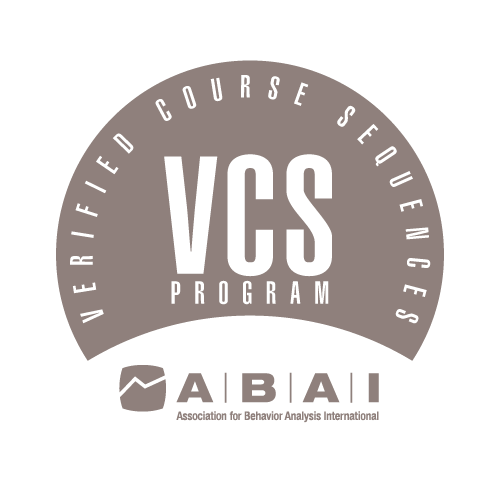Online Certificate in Applied Behavior Analysis
GRADUATE PROGRAMS
Discover how people learn and explore theories of behavior change.
The Purdue University College of Education’s online Certificate in Applied Behavior Analysis (ABA) prepares future behavior analysts to apply the science of behavioral research across educational systems. This 21-credit program is ideal for those that already have a master’s degree and want to complete the verified course sequence necessary for becoming a Board Certified Behavior Analyst. This is an online program, and a master’s degree is required to be completed in order to be admitted into the Certificate program. For information on accepted majors, please contact aba@purdue.edu.
What is applied behavior analysis?
Applied behavioral science is a broad field of study using behavioral research and knowledge to solve real-world problems. The study of applied behavioral science is based on principles of exploring and understanding complex human behavior. ABA can be used to teach new skills, enhance performance, or reduce challenging behaviors in people of all ages, with or without disabilities. The specific focus of ABA interventions is unique to each person or situation, but in general, the goal is to increase behaviors that are helpful and promote learning. ABA can be used with any population including children, adults, families, and communities.
Our certificate program will focus on ethical principles and evidence-based best practices. This includes assessing behavior, developing personalized therapy plans, and using data to track progress. Our program supports ABA across contexts such as schools, home, community, and clinics.
Purdue quality. Flexible schedule.
Online students enjoy the same rigorous academic programs as on-campus students, but with a much more flexible class environment. The program utilizes a cohort model in which students begin a systematic sequence of coursework in the fall semester. The cohort model is designed to foster professional learning communities for students. Classes are taught in a synchronous, distance modality. Coursework and interactions occur in an online learning environment with students meeting online on specific dates and at set times (according to EST Eastern Standard Time Zone).
This 21-credit hour Certificate program also serves as an avenue for recruitment into the Special Education doctoral program. Note that while the Certificate program is online, the related doctoral program is not.
Applicants who have completed a master’s degree in a qualifying field of study with a minimum GPA of 3.0 are eligible for admission into the certificate program. Additionally, Purdue graduate students currently enrolled in a master’s or doctoral program in Psychological Sciences or Education could enroll in the certificate program with special permission of the Department Head and the Verified Course Sequence Coordinator.

Content of the program is an ABAI approved Verified Course Sequence for the 5th Edition Task List.
Request Information – ABA Graduate Certificate
"*" indicates required fields
Courses
Students spend an average of 15 hours a week on homework.
Program Overview
The program utilizes a cohort model in which students, regardless of option (fully online or hybrid), begin a systematic sequence of coursework in the fall semester. The cohort model is designed to foster professional learning communities for students. To facilitate this, the program is delivered through both asynchronous and synchronous class interactions. Required synchronous meetings provide students opportunities to interact in a live format with their professors and classmates. All students of the same cohort attend synchronous meetings together, through web conferencing from any location, or face-to-face. This fosters a sense of community and provides all students the opportunity to learn collaboratively. Students also have the opportunity to participate in independent applied behavior analysis research with program faculty as part of their plan of study.
Core Courses (21 credit hours)
A total of 21 credit hours is required for completion of this program.
- EDPS 54700 – Foundations and Principles of Behavior Analysis
- EDPS 54800 – Ethics of Applied Behavior Analysis
- EDPS 54900 – Verbal Behavior and Social Communication
- EDPS 55200 – Basic Concepts of Applied Behavior Analysis
- EDPS 61200 – Advanced Applied Behavior Analysis
- EDPS 62800 – Behavior Analyst as Supervisor
- EDPS 68800 – Single Subject Research Design
CBA Modules
All students in the program are required to purchase a one-year subscription to the CBA Learning Modules, offered by Behavior Development Solutions. Students will receive a discount on the price of the subscription due to this being a program requirement which brings the total to $345 for 12 months. Students will receive instructions for subscribing to the CBA modules via email from Behavior Development Solutions. It will be used in all courses and is required for taking the certification exam.
The CBA modules were specifically developed for learners to become fluent with the ABA terminology and prepare for the certification exam. Each learning module set consists of a 60 minute acquisition module and a timed fluency module. Specific CBA modules will be assigned in each of the 6 core courses. Within each module, students will complete the acquisition section followed by the fluency test. Though not required, students are encouraged to maintain their subscription until they sit for the BCBA exam. More information about the CBA modules >
Questions?
Admissions:
edgrad@purdue.edu
Course Content Information:
ABA@purdue.edu
Career accounts:
ITaP (765) 494-4000